Carmakers, including VW Group, are suspending the export of vehicles from Mexico into the US and revising production plans in the face of US tariffs brought in last week by the Trump administration. The German carmaker is also now holding all vehicles delivered after April 3 at US ports of entry.

Volkswagen Group is suspending vehicle shipments from Mexico to the US following the enforcement of 25% tariffs on vehicle imports on April 3. It is part of a wider move to hold vehicles delivered from global markets at the US ports of entry for the short-term.
The Audi division of VW Group has also said it will halt vehicle exports to the US from Europe, as well as Mexico, as the tariffs start to bite.
In Mexico the VW brand makes the Jetta sedan, and the Taos and Tiguan crossovers at its plant in Puebla, including for export to the US. Audi makes the Q5 and Q5 Sportback at its plant in San José Chiapa, also for the US market amongst others. However, the vehicles currently do not comply with the required 75% local content rule included in the US-Mexico-Canada Agreement (USMCA) on trade, which means they are liable to the 25% tax put on imports by the Trump administration last week.
VW brand sales in US of Mexican imports
| 2024 | 2023 | |
|---|---|---|
|
Jetta |
71,829 (+51.5%) |
47,408 |
|
Taos |
63,882 (+8.5%) |
58,889 |
|
Tiguan |
94,372 (+23.8%) |
76,228 |
While the Q5 is the most popular SUV Audi sells in the US, it also ships a range of vehicles to the country from Europe, and the new US tariffs apply to all vehicle imports from abroad.
Audi sales in US of Mexican imports
| 2024 | 2023 | |
|---|---|---|
|
Q5 (inc Sportback) |
56,799 (-23%) |
74,145 |
VW Group sent a statement to Automotive Logistics which said it had taken note of Trump’s decision to impose the 25% tariffs on all imports of passenger cars and light commercial vehicles (LCVs) to the US and is assessing the potential impact on supply chains and its production network. VW Group highlighted how important the US market was, reflected in its recent investment of $14 billion to support jobs and growth. It is currently holding vehicles delivered after April 3 at the ports of entry and will not be processing or invoicing dealers for them in the near term. That applies to all global shipments.
“We share the assessment of most experts that US tariffs and any counter-tariffs will have negative consequences for growth and prosperity in the US and other economic areas,” said the carmaker. “The entire automotive industry, global supply chains and companies as well as customers will have to bear the negative consequences.”
The carmaker group said it would continue to promote a rules-based exchange of goods, open markets and stable trade relations, which it said are “essential for a competitive economy and for the automotive industry in particular”.
“At the same time, we continue to advocate constructive talks between the trading partners in order to ensure planning security and economic stability and to avoid a trade conflict,” said VW Group.
Wider revisions on exports
According to Mexico’s National Institute of Statistics and Geography (Inegi), the country exported 3.47m vehicles in 2024, with 2.7m going to the US – 80% of production by the top carmakers in Mexico is destined to cross the border. Under the USMCA rules of content, 75% of a vehicle must be made in North America to qualify for tariff-free trade across the border. The 25% tariff applies to all imported vehicles until the US Department of Commerce implements a system to value US content, which would be deducted from the 25%.
A number of other carmakers are now also revising export plans to the US, including Infiniti, which has stopped moving its QX50 and QX55 SUVs from the joint venture Compas plant Nissan runs with Mercedes-Benz in Aguascalientes. Mercedes-Benz is also reported to be considering adding another vehicle to its assembly lines at the Tuscaloosa plant in Alabama. It currently makes the Mercedes GLB SUV at the Aguascalientes plant.
JLR has also suspended exports of vehicles to the US from the UK.
Topics
Trump tariffs: A timeline of impacts on automotive logistics
- 1
- 2
- 3
- 4
- 5
- 6
- 7
- 8
- 9
- 10
- 11
- 12
- 13
- 14
- 15
- 16
- 17
- 18
- 19
- 20
 Currently reading
Currently readingVW Group one of a number of carmakers revising exports of vehicles from Mexico to US
- 21
- 22
- 23
- 24
- 25
- 26
- 27
- 28










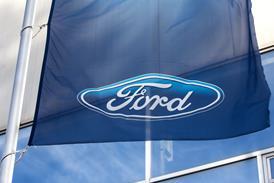
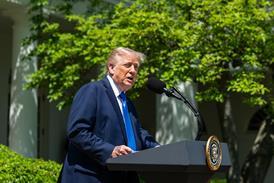




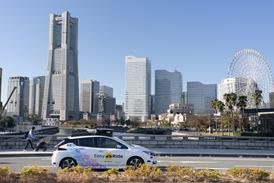
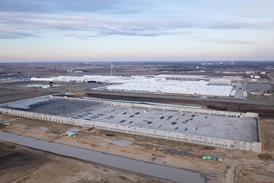











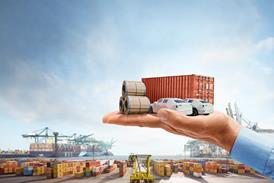





































No comments yet